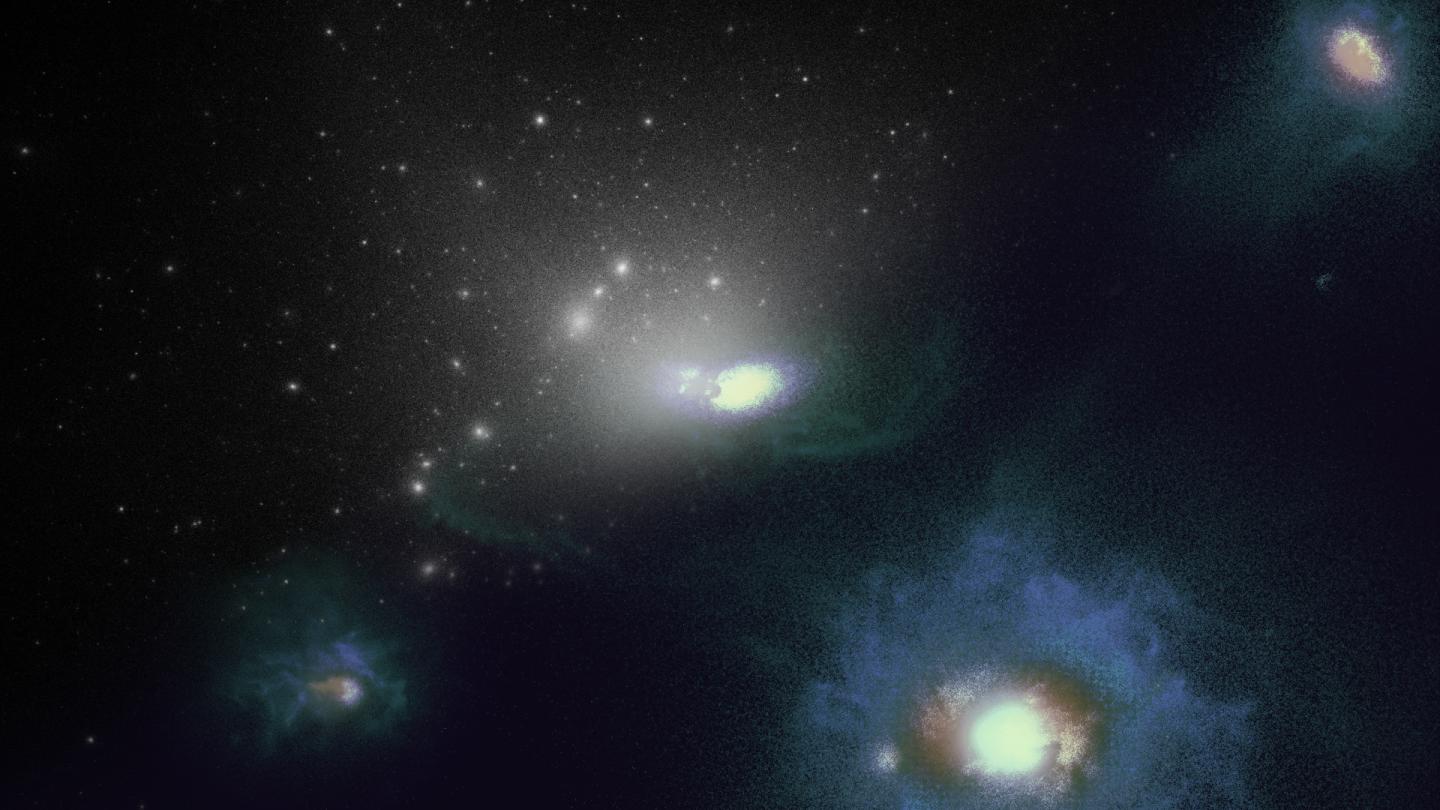Science News Roundup: Scientists Identify Milky Way's Ancient Building Blocks Shakti and Shiva; Thai Scientists Breed Coral in labs to Restore Degraded Reefs and more
It belongs to a lineage believed to have given rise to the three living branches of amphibians - frogs, salamanders and limbless caecilians. Thai scientists breed coral in labs to restore degraded reefs On a starry night, four Thai marine biologists scuba dived through shallow waters off an island in the country's south as billions of pink specks floated up from the ocean floor in a spectacle that takes place only once a year.

Following is a summary of current science news briefs.
Soyuz spacecraft to launch Saturday, reach space station Monday, officials say
A problem that forced the last-minute cancellation of a crew launch to the International Space Station has been successfully resolved and it will now take off on Saturday and dock with the ISS on Monday, Russian officials said. The launch of the Soyuz spacecraft carrying Russian Oleg Novitsky, Belarusian Marina Vasilevskaya and American Tracy Dyson was aborted seconds before lift-off on Thursday due to what Russian space agency Roscosmos described as a problem with a chemical power source.
Launch aborted of Russian Soyuz spacecraft seconds before blast-off
The launch of a Russian Soyuz spacecraft was aborted just seconds before scheduled lift-off to the International Space Station (ISS) on Thursday and the crew of a Russian, a Belarusian and an American were safety evacuated. "Launch!" mission control said in Russian as the rocket was shown at its launch site at the Baikonur cosmodrome in the steppe of Kazakhstan with its a main umbilical shown moving away.
Creature named for Kermit the Frog offers clues on amphibian evolution
There definitely were no muppets during the Permian Period, but there was a Kermit - or at least a forerunner of modern amphibians that has been named after the celebrity frog. Scientists on Thursday described the fossilized skull of a creature called Kermitops gratus that lived in what is now Texas about 270 million years ago. It belongs to a lineage believed to have given rise to the three living branches of amphibians - frogs, salamanders and limbless caecilians.
Thai scientists breed coral in labs to restore degraded reefs
On a starry night, four Thai marine biologists scuba dived through shallow waters off an island in the country's south as billions of pink specks floated up from the ocean floor in a spectacle that takes place only once a year. The pink specks were sperm and eggs released by coral. The scientists collected as many samples as possible for breeding, as they fight to save Thailand's expansive reefs from degradation driven by warming oceans and human activity like tourism.
Scientists identify Milky Way's ancient building blocks Shakti and Shiva
Astronomers have identified two ancient streams of stars - named after the Hindu deities Shakti and Shiva - that appear to be among the Milky Way's earliest building blocks, offering new insight into how our galaxy came together long ago. These structures, found using observations from the European Space Agency's Gaia space telescope, may be relics of two distinct galaxies that merged roughly 12 billion years ago with the Milky Way's primordial pieces during the galaxy's infancy, the scientists said.
(With inputs from agencies.)










